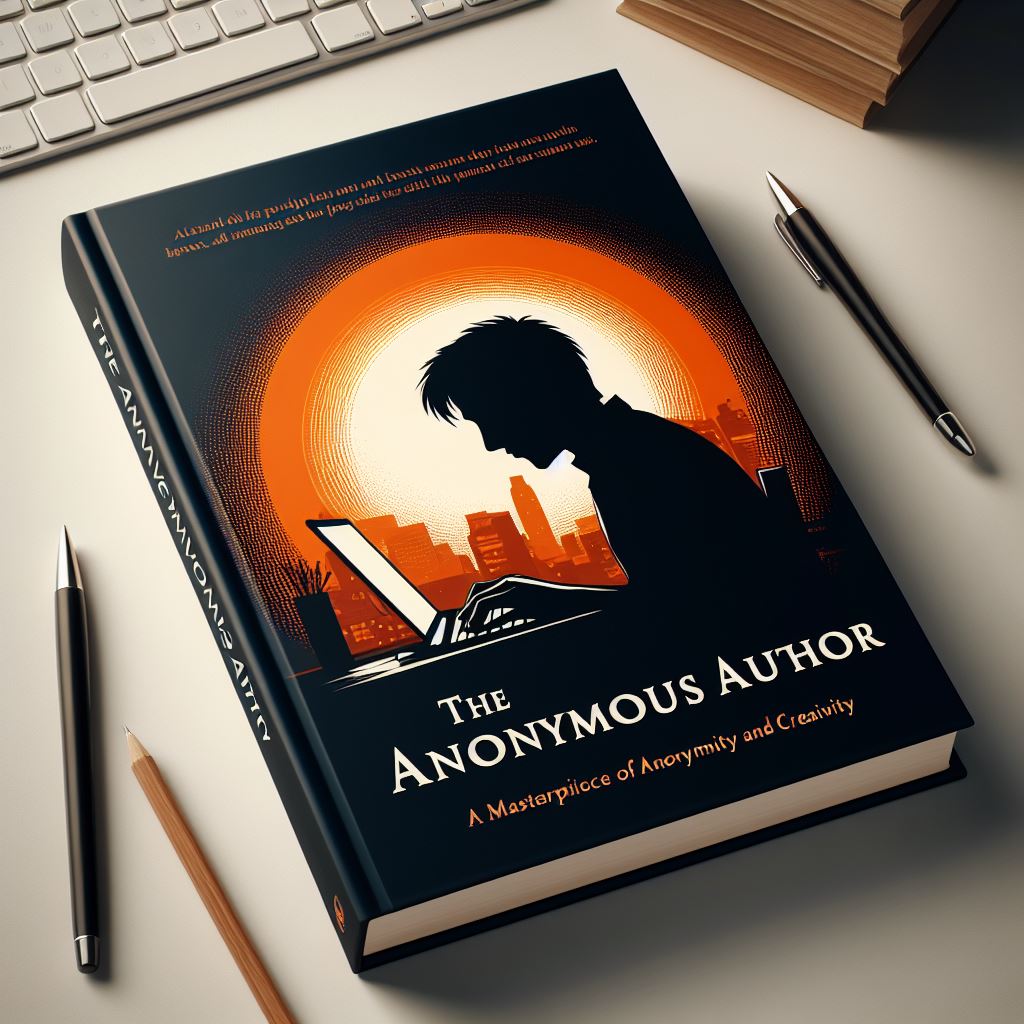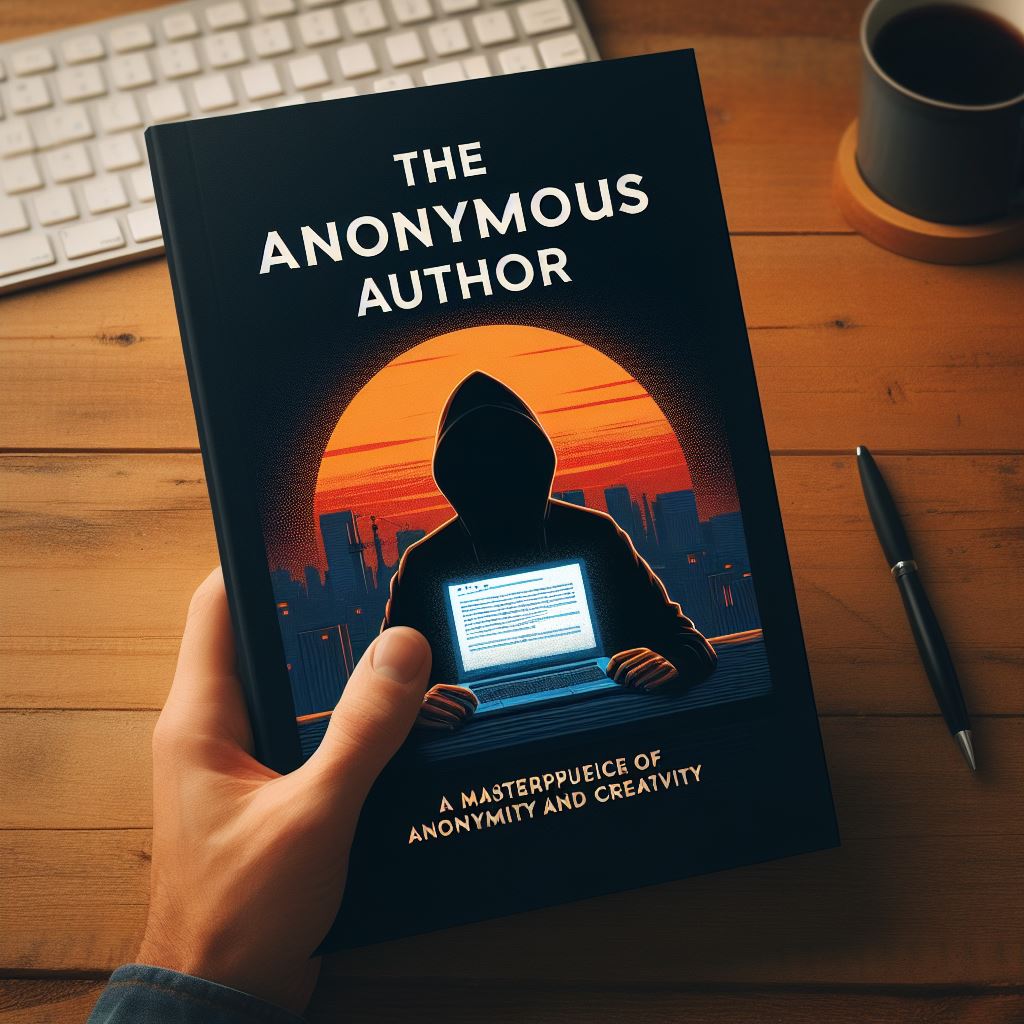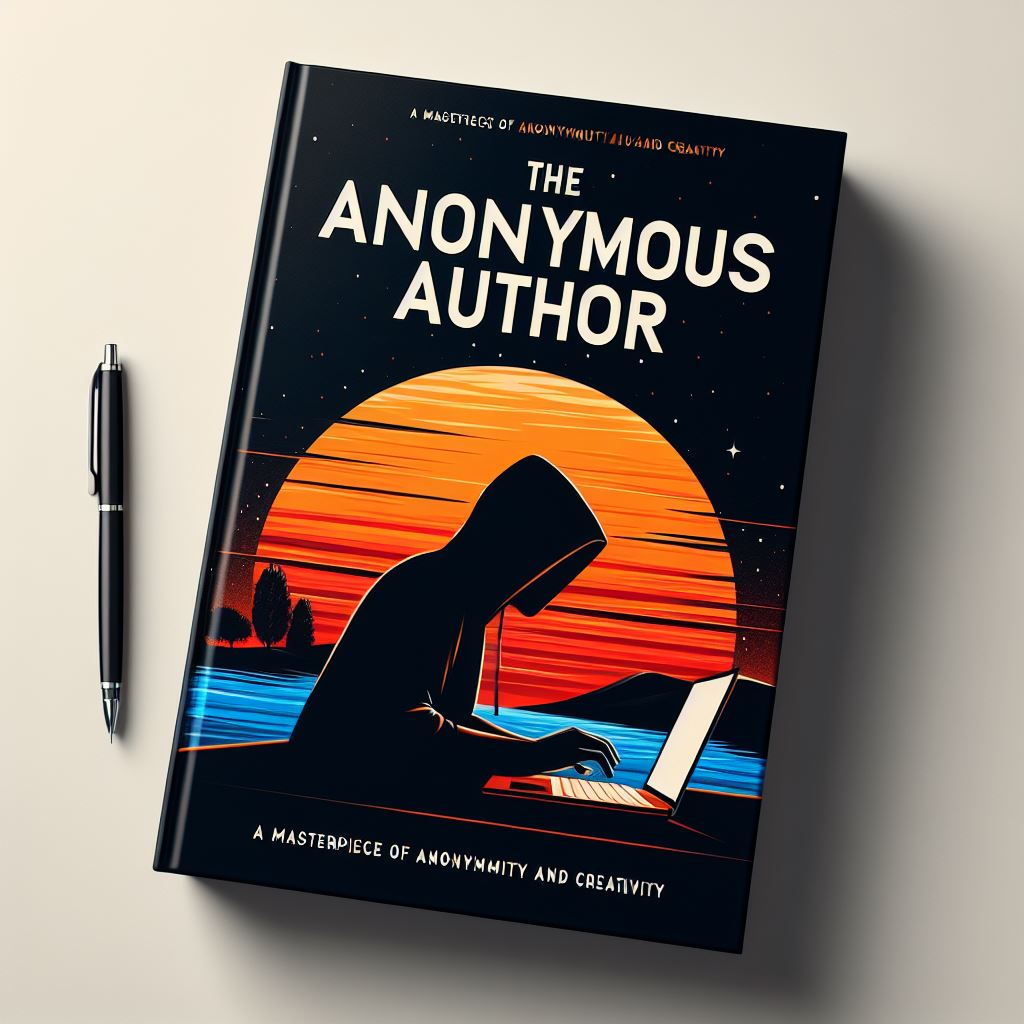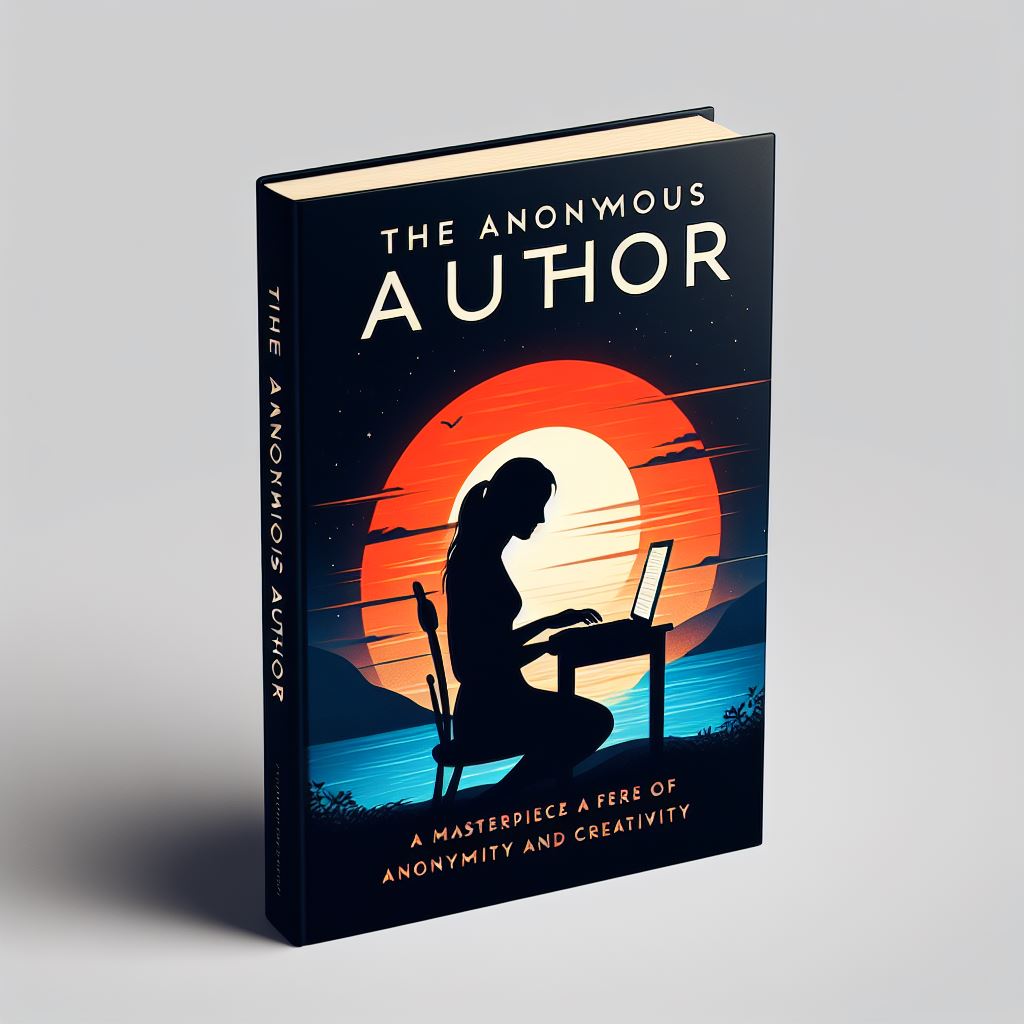Anonymous Author




An anonymous author is someone who chooses not to reveal their identity publicly. There are many reasons why someone might choose to write anonymously, including:
- To protect themselves from reprisal or persecution
- To avoid affecting their personal or professional reputation
- To allow their work to speak for itself, without the influence of their personal identity
- To add a sense of mystery or intrigue to their work
Anonymous authors have played a significant role in literature, journalism, and activism throughout history. Their work can provide a valuable perspective on a wide range of issues, and their anonymity can allow them to speak freely and honestly without fear of retribution.
Anonymous Author Definition & Meaning
The term “anonymous author” refers to an individual who creates literary, artistic, or scholarly works without disclosing their true identity. In other words, an anonymous author chooses not to reveal their name or personal details associated with their work, opting instead to let the content speak for itself. This decision can be motivated by various factors, including a desire for privacy, concerns about safety or repercussions, artistic expression, or cultural tradition.
Anonymity in authorship has a long history, dating back to ancient times when scribes often remained unnamed, and collective authorship was common. Throughout history, authors have chosen anonymity for religious, political, artistic, or personal reasons. In some cases, anonymity allows authors to explore controversial topics or challenge societal norms without fear of personal repercussions. It can also serve as a means of amplifying the message or ideas presented in the work, by shifting the focus away from the individual and onto the content itself.
In contemporary times, anonymous authorship continues to be relevant, particularly with the rise of digital communication and online platforms. Many authors choose to publish anonymously or under pseudonyms in online forums, blogs, and social media platforms, where anonymity offers a level of protection and freedom of expression.
Overall, the concept of the anonymous author underscores the idea that literature and art can transcend individual identity, inviting readers to engage with ideas and perspectives on their own merits, rather than being influenced by the author’s personal background or reputation.
Anonymous Author: Definition & Meaning
An anonymous author is a writer whose identity is unknown or withheld from the public. Their work is published either entirely anonymously or under a pseudonym, which is a pen name adopted by the author instead of their real name.
Here are some key points about anonymous authors:
- Unknown or withheld identity: This is the defining characteristic. The author’s true name remains a mystery to the reader.
- Reasons for anonymity: There are various reasons for choosing anonymity, such as:
- Safety: To avoid persecution or reprisal for their work.
- Reputation: To protect their personal or professional standing.
- Focus on the work: To allow the work to stand on its own merit, without the influence of the author’s identity.
- Mystery: To create intrigue or a sense of mystery around the work.
- Examples: Throughout history, a number of famous works were written by anonymous authors, including:
- The “Federalist Papers”
- “Beowulf”
- “The Tale of Genji”
- Impact: Anonymous authors can provide valuable perspectives and play a significant role in literature, journalism, and activism. Their work allows them to speak freely and honestly without fear of retribution.
While their identities may remain hidden, anonymous authors leave a lasting legacy through their powerful words and enduring works.
The Enigmatic World of the Anonymous Author
In the realm of literature, the allure of anonymity has long captivated both readers and scholars alike. The concept of an “anonymous author” conjures a sense of mystery, intrigue, and perhaps a touch of rebellion against the fame-seeking tendencies of modern society. From ancient manuscripts to contemporary works, the phenomenon of authors choosing to withhold their identity continues to fascinate and spark debate.
Origins and Historical Context
The tradition of anonymity in literature traces back centuries, with various cultural, religious, and political motives driving authors to conceal their identities. In ancient times, scribes often remained unnamed, their creations attributed to the collective wisdom of a community or religious institution. The anonymity of the scribe allowed the text to transcend individual authorship and attain a timeless, universal quality.
Religious texts, too, have frequently been authored anonymously or pseudonymously. The Bible, for example, features numerous works whose true authors remain unknown or disputed. The anonymity of these texts has generated rich theological discourse, with scholars pondering the implications of divine inspiration divorced from human authorship.
Literary Tradition and Artistic Expression
In the realm of literature, the decision to publish anonymously can serve various artistic and practical purposes. Some authors choose anonymity to shield themselves from personal scrutiny or political reprisal. By divorcing their identity from their work, they can freely explore controversial themes or challenge prevailing ideologies without fear of retribution.
Anonymity also allows authors to experiment with narrative voice and perspective, blurring the lines between fiction and reality. The absence of an identifiable author invites readers to engage more deeply with the text, encouraging them to consider alternative interpretations and construct their own meanings.
Contemporary Examples and Cultural Impact
In the age of digital communication and social media, the concept of anonymity has taken on new significance. Online forums and publishing platforms provide a platform for anonymous authors to share their thoughts, stories, and creations with a global audience. From viral Reddit threads to self-published e-books, anonymous authors wield considerable influence in shaping contemporary discourse and challenging established literary norms.
One of the most famous examples of contemporary anonymity is the case of “Elena Ferrante,” the pseudonymous Italian author whose Neapolitan Novels captivated readers worldwide. Despite intense speculation surrounding her true identity, Ferrante has steadfastly refused to reveal herself, insisting that her work should speak for itself. This commitment to anonymity has only served to deepen the mystique surrounding her persona and fuel public fascination with her novels.
Ethical Considerations and the Future of Anonymity
While anonymity can empower authors to express themselves freely, it also raises ethical questions regarding accountability and transparency. Critics argue that anonymous authors may evade responsibility for the consequences of their words, whether through defamation, misinformation, or hate speech. As the boundaries between public and private discourse continue to blur, society must grapple with the implications of anonymous expression in an increasingly interconnected world.
Looking ahead, the enigmatic allure of the anonymous author shows no signs of waning. In an era defined by surveillance culture and the relentless pursuit of fame, the decision to publish anonymously represents a radical act of resistance—a reaffirmation of the primacy of ideas over individual ego. Whether cloaked in secrecy or revealed to the world, the words of the anonymous author remind us of the enduring power of storytelling to transcend the limitations of time, place, and identity.
The Enigmatic Figure: Unveiling the Anonymous Author
In the world of literature, where every book boasts an author’s name on its cover, there exists a unique breed of creators: the anonymous authors. These individuals choose to shroud their identities in secrecy, leaving their work to speak for itself, unburdened by the influence of personal fame or potential biases.
The reasons for choosing anonymity are as diverse as the authors themselves. Some, like the whistleblower who penned the “Pentagon Papers,” may seek protection from reprisal for exposing sensitive information. Others, like the famed street artist Banksy, might use anonymity to cultivate an air of mystery and intrigue, allowing their art to stand on its own merit, free from the distractions of their personal story.
Anonymity can also be a shield for those who fear jeopardizing their professional or personal reputation. Authors facing societal pressures or working in restrictive environments might find anonymity liberating, allowing them to express themselves creatively without fear of judgment.
Furthermore, some authors choose anonymity to allow their work to transcend the limitations of their individual identity. They may want their readers to focus solely on the message conveyed in the text, uninfluenced by preconceived notions or biases associated with their name, gender, or social background. This allows for a more objective evaluation of their work and potentially fosters a deeper connection with the reader on the basis of the ideas presented.
The history of literature is peppered with examples of anonymous authors who have left an indelible mark on the world. From the timeless wisdom of ancient proverbs to the revolutionary ideas expressed in underground pamphlets, anonymous voices have played a crucial role in shaping societies and sparking intellectual discourse.
While the anonymity of these authors may pose challenges for literary analysis and historical documentation, it also serves as a powerful reminder of the inherent power of storytelling. In a world saturated with personal branding and self-promotion, anonymous authors offer a refreshing perspective, reminding us that the true value of a work often lies not in the author’s name, but in the ideas and emotions it evokes within the reader.
